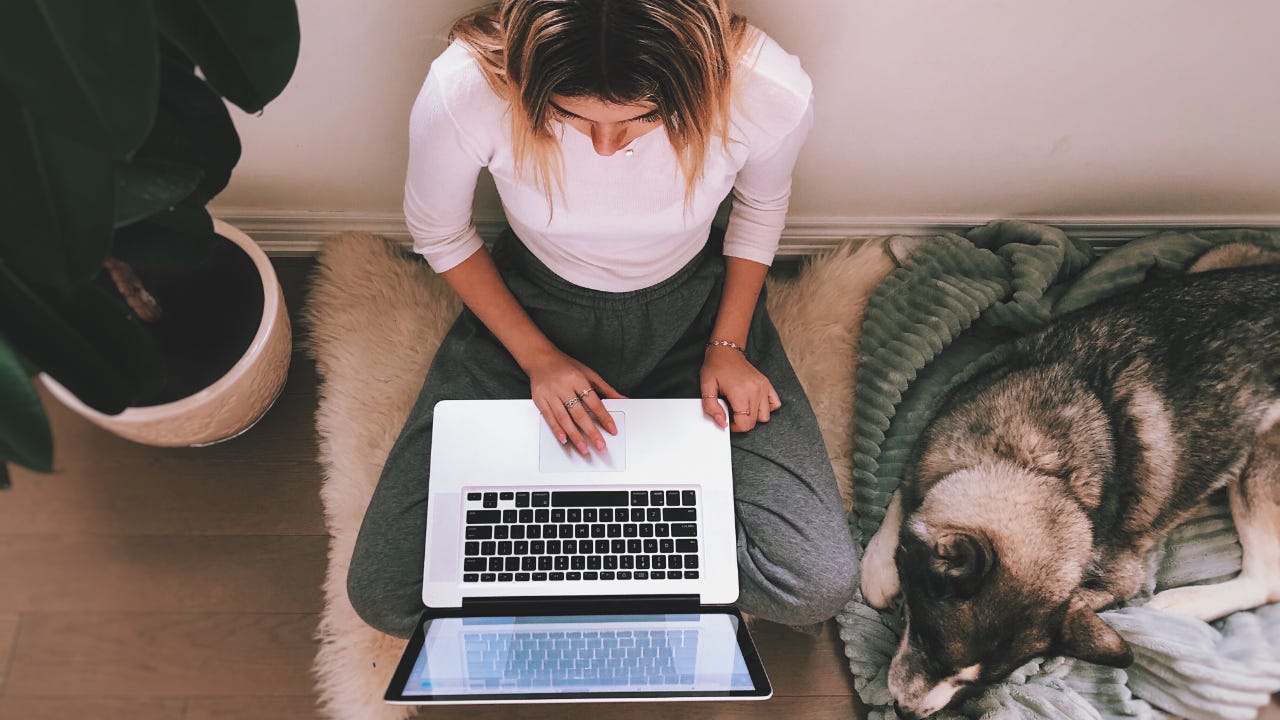How to balance your checking account and why it matters

Key takeaways
- Balancing your checking account entails keeping track of your starting balance along with all withdrawals and deposits to follow your balance.
- Tracking your withdrawals and knowing your balance can help you avoid overdraft fees or insufficient funds fees and quickly see any mistakes or issues that need to be addressed.
- Balancing your checkbook is also a great way to be fully aware of where your money is going and check for areas you can cut back on to help increase your savings.
Balancing your checking account may seem like a chore, but tracking your expenses and knowing your available balance can help you spot fraud, avoid overdrafts and better understand your spending patterns. The process of balancing your account simply involves listing your debits and credits — deposits and withdrawals — and adding them up to determine your balance. It can be done using pen and paper or money management software.
What it means to balance a checking account
Balancing a checking account means listing out every withdrawal from and deposit to the account. Along with each of these line items, you should list the new account balance by factoring in the withdrawal or deposit. You’ll need access to your bank transaction summary as well as a paper checkbook, a spreadsheet or a budgeting app.
It’s important to keep this type of record instead of just relying on the transaction history provided by your bank. This is because it can take some time for the bank to become aware of things like checks written or transfers out of the account. In balancing your checking account, you subtract such transactions immediately to help prevent spending funds you’ve already committed elsewhere.
How to balance a checking account
If you’re using a paper checkbook, balancing your account involves a few straightforward steps.
1. Write down your transactions in the check register
Checkbooks come with registry books that allow you to record when money leaves or enters the account. Each line will have a place at the right for you to calculate the new balance.
Tip: It pays to record your transactions as frequently as every day or every couple of days. This helps you to keep track of your balance so you don’t accidentally overspend.
2. Cross-check your registry against your bank’s records
You can do this either by logging onto your bank account to view your transaction record or by looking at your latest bank statement.
Tip: Making sure your records match those of the bank ensures you didn’t make any mistakes in your calculations or forget to include any transactions.
3. Update your account balance regularly
In your check registry, always determine your available balance. This way, you’ll know what you have left to spend before going to the store, initiating a bill payment or writing a check.
Tip: Knowing your bank balance helps you decide quickly whether you can afford an impulse buy at the store or whether you should hold off on a last-minute dinner at your favorite restaurant.
Using a spreadsheet or an app involves a similar enough process, except you’ll have the added benefit of the technology doing the adding and subtracting for you — which ultimately makes for quicker work and less room for error.
Why balancing your checking account is important
The benefits of balancing your checking account are tenfold, and the process is easy to incorporate into your daily life. The practice helps you to:
- Avoid overspending and overdrafts.
- Recognize bank errors, or your own accidental omissions or miscalculations.
- Identify bank fraud quickly.
- Spot bank fees and determine how to avoid them.
- Easily know whether you’re capable of making certain purchases or if you should wait.
- Identify whether you have money left over that can be transferred to an interest-bearing savings account.
Here we’ll go into some of these benefits in more detail:
1. Reconciling your checking account
Reconciling your checking account means cross-checking all the transactions in your own records with those of the bank to ensure they match. It can help you find any mistakes on your part or that of the bank.
Before computers became commonplace, reconciling a checkbook required manual tracking and calculation, but today, banking apps and budgeting software can do most of the work — and much more quickly.
Apps can help you track transactions and give you a simple dashboard to use when reconciling your account.
2. Spotting fraud
Another reason to balance your checking account is to check for fraud. If you’re reconciling your account and there’s a difference between the balance you expect to have and the balance your bank says is in your account, it isn’t necessarily a mistake made by the bank.
If fraudsters have access to your account, they may not immediately drain it. Instead, they could siphon off funds slowly enough that you don’t notice. Regularly reconciling your account can help you catch these transfers and put a stop to them.
3. Tracking bank fees
You may be charged bank fees, such as regular maintenance fees and out-of-network ATM fees. The way banks report fees on statements can make it hard to keep track of some fees. For instance, your bank may report a $20 withdrawal with a $3 associated fee as a $23 withdrawal.
Balancing your checking account helps you see how much you’re truly paying to use the account, which may encourage you to change to an account with fewer fees.
4. Keeping track of your spending
Budgeting requires diligence. It involves building a plan based on your spending habits and tracking your spending to ensure you stay on course. Balancing your checking account helps you to track spending because every transaction must be reviewed, which can help you identify areas where you’ve overspent and can cut back.
Tracking your spending is also important when you write checks. If you write a check for $500, the money stays in your account until the check is cashed, which could take several days or weeks or even longer, depending on who the check was made out to. In the meantime, you might forget about it and think you have $500 more than you really do. If you spend that money, your account could become overdrawn once the check is cashed.
5. Catching mistakes made by your bank
Bank errors may be uncommon, but they happen from time to time. Balancing your checking account and monitoring your transactions can help ensure any mistakes are caught and can be fixed. Balancing your account can also help you find and rectify any instances where a merchant has erroneously double-charged you, or billed you the wrong amount for goods or services.
6. Staying up-to-date on automatic payments
Not balancing your checking account regularly can make it easy to forget all the places your money is going. Reviewing your transactions helps to keep you aware of the things that are impacting your finances and to make changes as you see fit.
For instance, you might see recurring charges for things you no longer use, such as a gym membership, a streaming service or a magazine subscription. Identifying such charges and canceling them gives you more money each month for necessary expenses or to build up an emergency fund.
Why we ask for feedback Your feedback helps us improve our content and services. It takes less than a minute to complete.
Your responses are anonymous and will only be used for improving our website.
You may also like


How to use autopay to manage your finances




